These photos, courtesy of Valerie B. Johnson, record the Rossell Hope Robbins Library exhibition, Malory's
Morte d'Arthur, that ran from January to May of 2010. All items featured in this exhibition come from the collection of Alan Lupack and Barbara Tepa Lupack.
Table of Contents
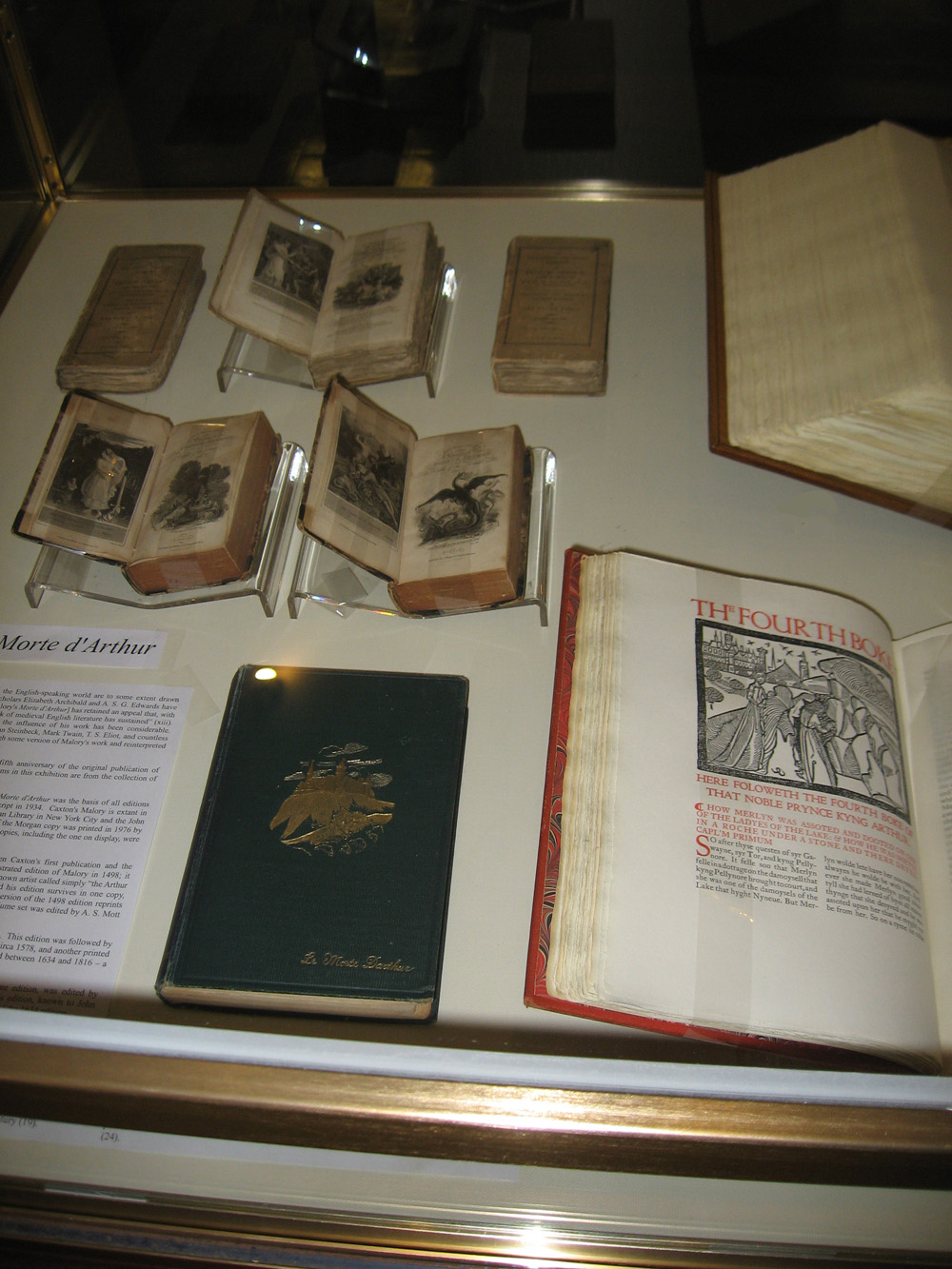
Case One displayed notable early editions of Caxton's Malory. Top left: three-volume 1816 edition edited by Joseph Haslewood; middle left: two-volume 1816 edition edited by Alexander Chalmers; bottom left: 1868 Strachey edition; lower right: 1933 version of Wynkyn de Worde's text that reproduces the original 1498 text.
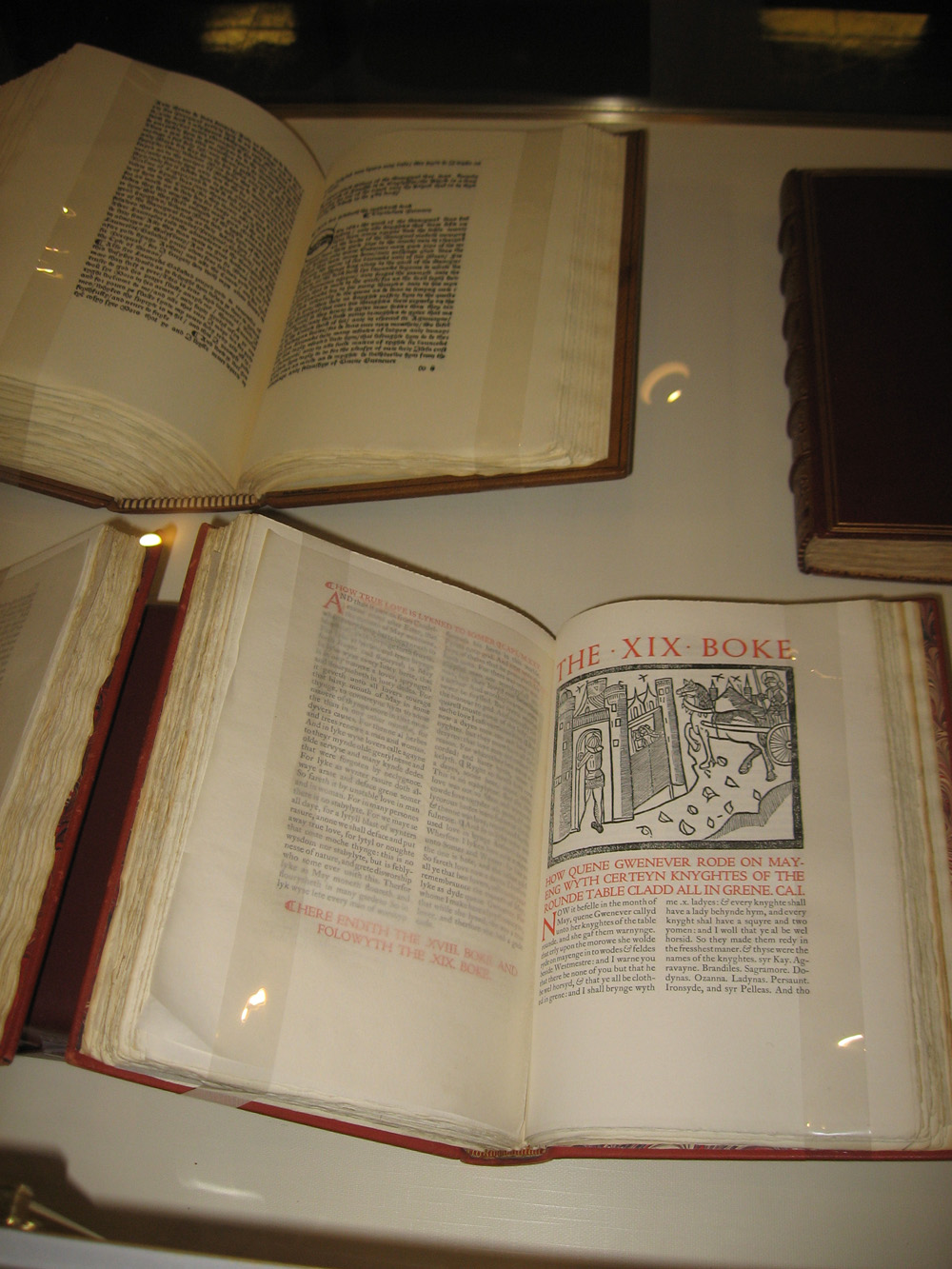
This view of Case One focuses on two reprints of the earliest editions of Malory's Morte d'Arthur. Above: 1976 facsimile of Caxton's 1485 edition of Malory; below: volume 2 of the 1933 Shakespeare Head Press edition of de Worde's printed edition.
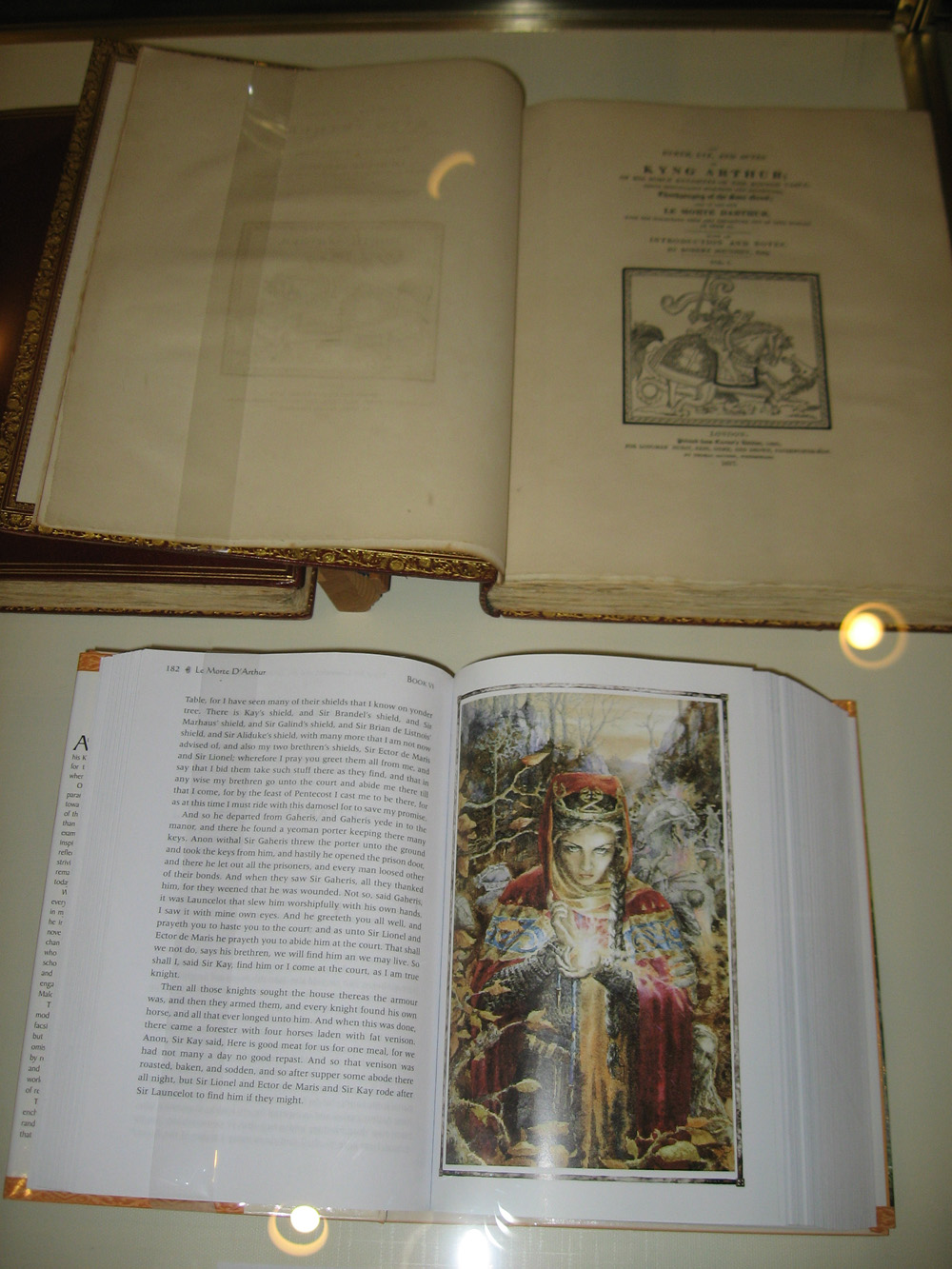
This final photo of Case One juxtaposes two versions of Caxton's text separated by almost two hundred years. Above: Southey's 1817 edition; below: Cassell and Company's 2000 edition, illustrated by Anna-Marie Ferguson.
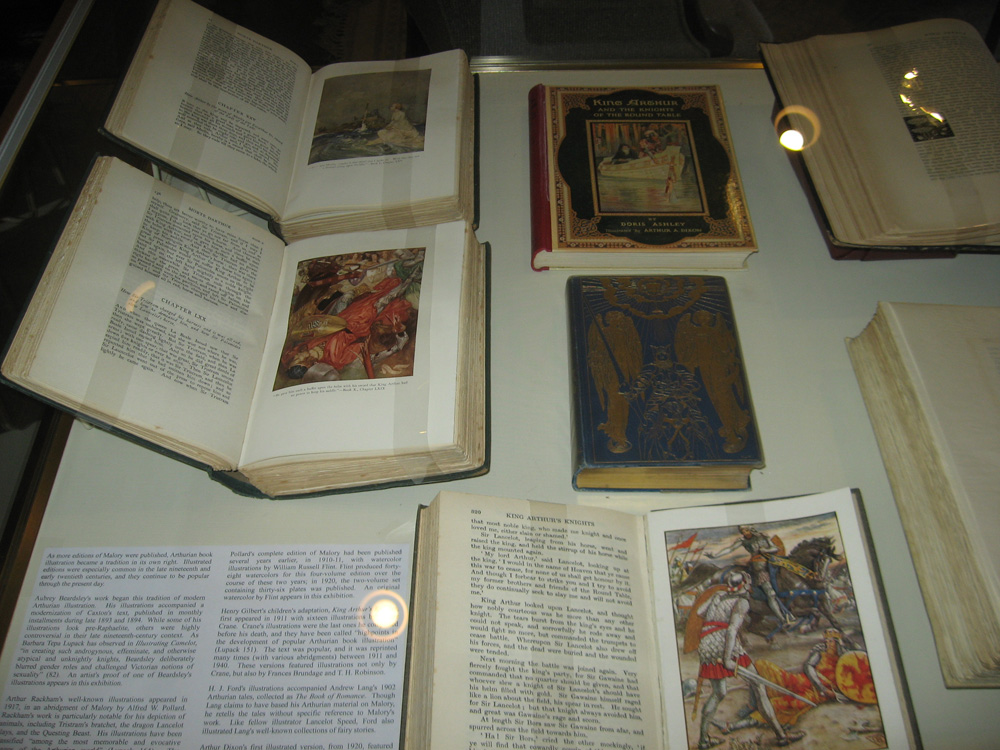
Case Two featured illustrated and children's editions. This selection of illustrated editions demonstrates that Arthurian book illustration is a tradition in its own right. Left: two-volume edition illustrated by Sir William Russell Flint; top right: cover, King Arthur and the Knights of the Round Table, illustrated by Arthur Dixon; middle right: cover, Andrew Lang's The Book of Romance; bottom right: King Arthur's Knights, illustrated by Walter Crane.
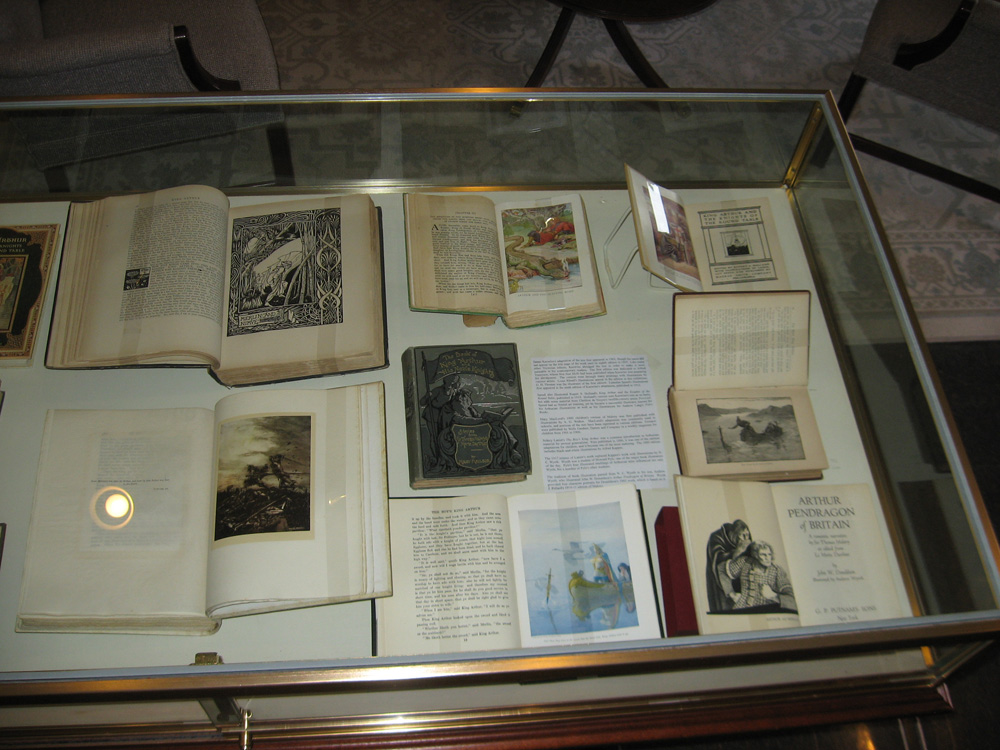
This alternate view of Case Two shows the work of other famous Arthurian illustrators. Top left: edition illustrated by Aubrey Beardsley; lower left: Alfred Pollard's 1917 abridgement of Malory with illustrations by Arthur Rackham; top center: King Arthur and his Knights, illustrated by Louis Rhead; center: cover, Mary MacLeod's King Arthur and His Noble Knights: Stories from Sir Thomas Malory's Morte d'Arthur; bottom center: 1917 edition of Sidney Lanier's The Boy's King Arthur, with illustrations by N. C. Wyeth; top right: King Arthur and His Knights of the Round Table, illustrated by Lancelot Speed; middle right: 1880 edition of Lanier, with illustrations by Alfred Kappes; bottom right, Arthur Pendragon of Britain, with illustrations by Andrew Wyeth.
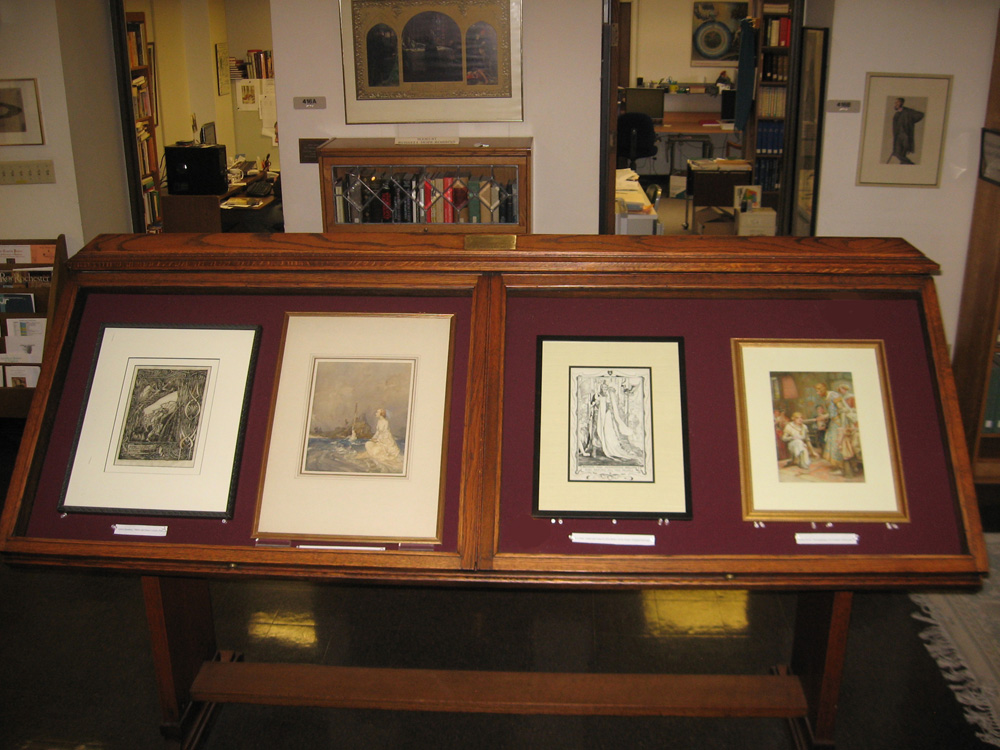
These two cases, Three and Four, held original art by four famous Arthurian book illustrators. The artifacts, from left to right, are as follows: Aubrey Beardsley's "Merlin and Nimue" (Artist's Proof); Sir William Russell Flint's "'Lo!' said Merlin, 'yonder is that sword that I spake of.' With that they saw a damosel going upon the lake" (Original Watercolor); H. J. Ford's "Arthur and Guinevere Kiss Before All the People" (Original Drawing); and Arthur Dixon's "The Knighting of Sir Galahad" (Original Watercolor).
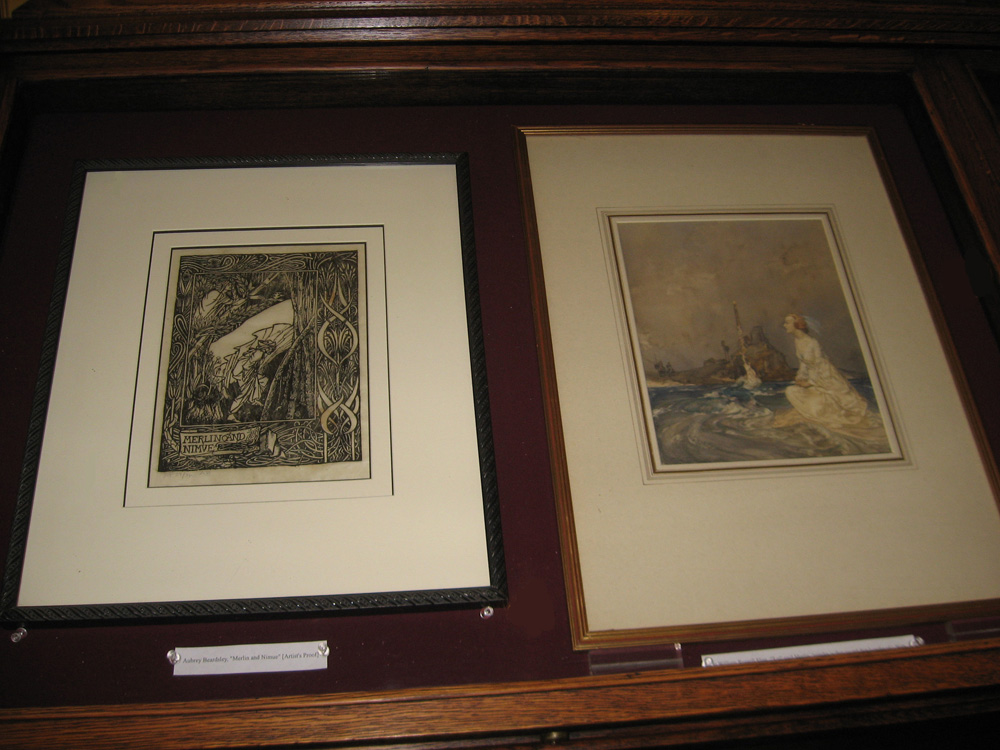
This photo of Case Three shows a closer view of Beardsley and Flint's art. Left: Beardsley, "Merlin and Nimue"; Right: Sir William Russell Flint, "'Lo!' said Merlin, 'yonder is that sword that I spake of.' With that they saw a damosel going upon the lake"
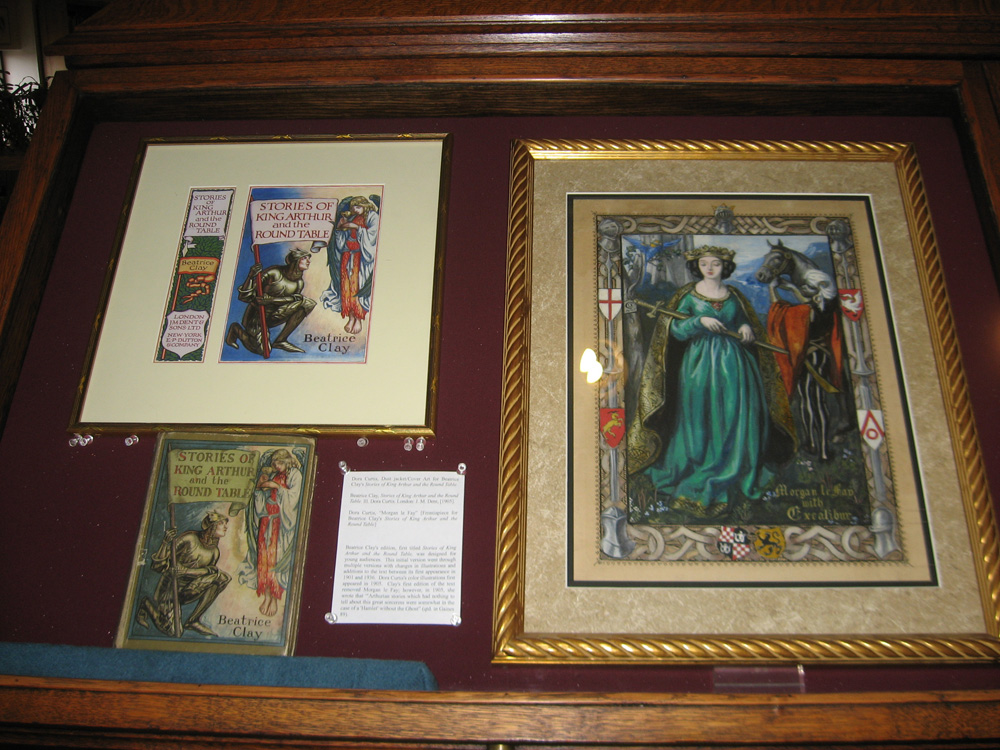
Case Five contained two pieces of original art by Dora Curtis, done for Beatrice Clay's Stories of King Arthur and the Round Table. Upper Left: original dust jacket and cover art for Clay's adaptation. Lower left: an edition of Clay's book, published 1905. Right: Curtis's "Morgan le Fay" (Original Watercolor).
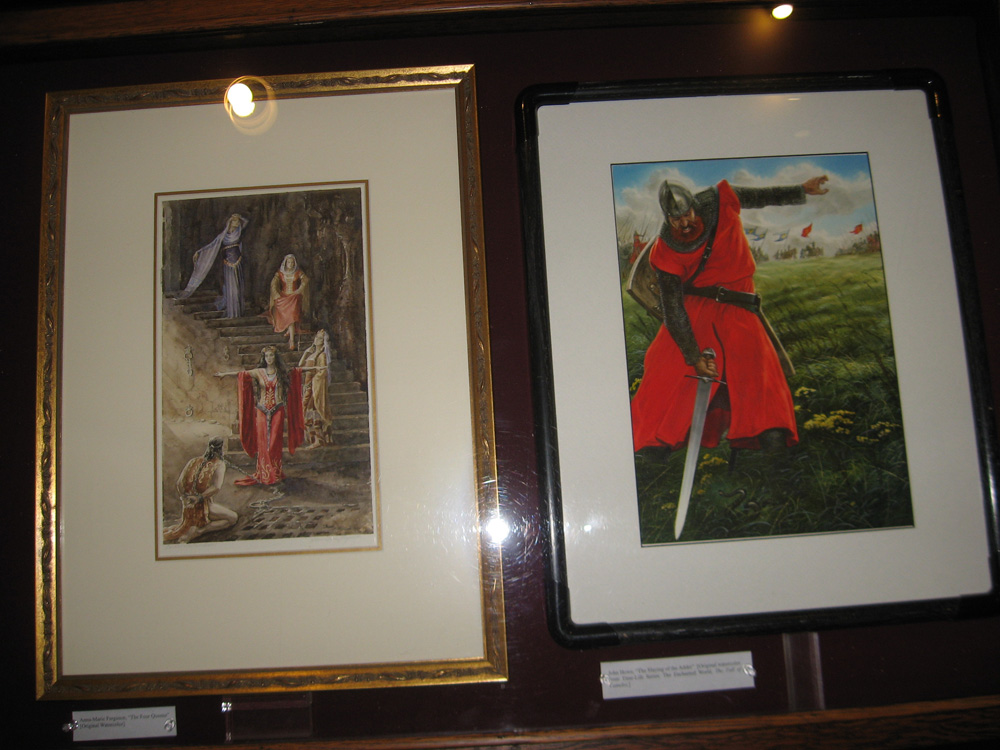
Case Six contained two pieces of art, both of which are original watercolors. Left: Anna-Marie Ferguson, "The Four Queens"; Right: John Howe, "The Slaying of the Adder"















